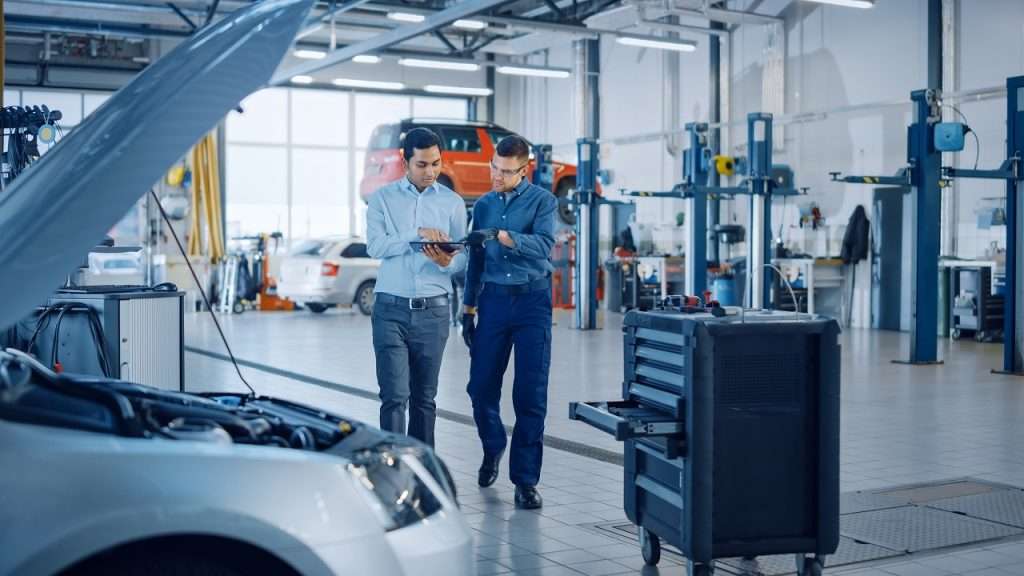Business Finacial Group

As an owner of an auto repair shop, being proactive in tax planning is essential to minimize tax burdens and free up valuable resources for reinvesting in the business. Implementing effective tax planning strategies can help take advantage of tax deductions and opportunities, significantly impacting the bottom line.
In this blog post, we will provide a comprehensive overview of Tax Strategies to Minimize Liability for Auto Repair Shops. We will explore various approaches to accelerate expenses and defer income, make the most of available tax deductions, leverage the Section 179 deduction, carefully consider depreciation and capital expenditures, and even incorporate marketing strategies to reduce overall tax liability.
By gaining a deeper understanding of these tax-saving strategies, auto repair shop owners can optimize their tax savings and create a conducive environment for accelerated business growth.
II. Tax Strategies for Auto Repair Shops
Managing taxes for an auto repair shop involves key strategies to boost profits and minimize tax responsibilities. Accurate record-keeping of expenses like supplies, equipment, and wages allows for deductions and lower taxable income. Understanding specific tax laws for auto repair shops helps in utilizing available credits and incentives. Incorporating the business offers benefits such as reduced personal tax liability and asset protection. Seeking guidance from a tax professional specializing in auto repair shops ensures maximum tax savings. Implementing these strategies optimizes financial standing and preserves earnings.
A. Accelerate Expenses and Defer Income
Auto repair shops can employ a highly effective tax strategy by accelerating expenses and deferring income. This involves paying expenses before the year-end to reduce taxable income while postponing income recognition to the following year to lower the current year’s tax liability.
By accelerating expenses, auto repair shops can take advantage of deductions and effectively decrease their taxable income. On the other hand, deferring income can help reduce the immediate tax burden by shifting revenue recognition to the subsequent year.
CONTACT US NOW !!!
CALL US TODAY FOR A CONSULTATION!

Have Questions? Call us at (678) 799-7241 and let us show you how our expertise can save you in the long run.
To reduce their tax liability, auto repair shops can capitalize on various tax deductions. Some of the essential deductions include:
Business expenses: This covers expenses such as rent, utilities, and insurance premiums.
Vehicle expenses: Estimating and deducting business vehicle expenses, including fuel, maintenance, and repairs.
Employee expenses: Deductions for employee salaries, benefits, and training costs.
Equipment and supplies: Deducting expenses related to equipment, tools, diagnostic gear, and parts.
To optimize deductions, meticulous record-keeping of all business expenses is crucial, and consulting with a tax professional ensures compliance with tax laws.
Auto repair shops can significantly benefit from the Section 179 deduction, which permits the deduction of the full cost of qualifying equipment and software purchases in the year they are placed in service.
This deduction proves particularly advantageous for auto repair shops that invest in expensive equipment or software to enhance their operations. To qualify for the Section 179 deduction, the equipment or software must be acquired and utilized by December 31st of the tax year.
Leveraging depreciation and capital expenditures can further reduce the tax liability for auto repair shops. Depreciation allows businesses to deduct the cost of assets over their useful life, while capital expenditures permit deductions for improvements that extend an asset’s usefulness.
By utilizing these strategies, auto repair shops can effectively decrease their taxable income and lower their tax liability.
E. Implement Marketing Strategies
Auto repair shops can also benefit from tax-deductible marketing expenses. Implementing marketing strategies not only reduces the tax burden but also attracts new customers and boosts revenue. Some effective marketing strategies for auto repair shops include social media advertising, email marketing, and referral programs.
By implementing these tax strategies, auto repair shops can significantly minimize their tax liability and accelerate their savings. However, seeking guidance from a tax professional is essential to ensure compliance with tax laws and regulations, ultimately ensuring the financial success of the business.
In conclusion, tax planning plays a vital role in the success of an auto repair shop. By adopting various tax strategies like accelerating expenses and deferring income, capitalizing on tax deductions, utilizing the Section 179 deduction, considering depreciation and capital expenditures, and implementing marketing strategies, auto repair shops can significantly reduce their tax liability and expedite their savings.
Maintaining comprehensive records of business expenses and seeking guidance from a tax professional is essential steps to ensure adherence to tax laws and regulations. Consulting with experts also helps auto repair shop owners develop customized tax planning strategies that align with their specific business requirements.
Being proactive in tax planning empowers auto repair shops to liberate valuable resources for reinvestment, enhance their bottom line, and accelerate business growth. Waiting until tax season to initiate tax planning is not ideal; it is advisable to start implementing tax strategies promptly to maximize savings and achieve desired business objectives.